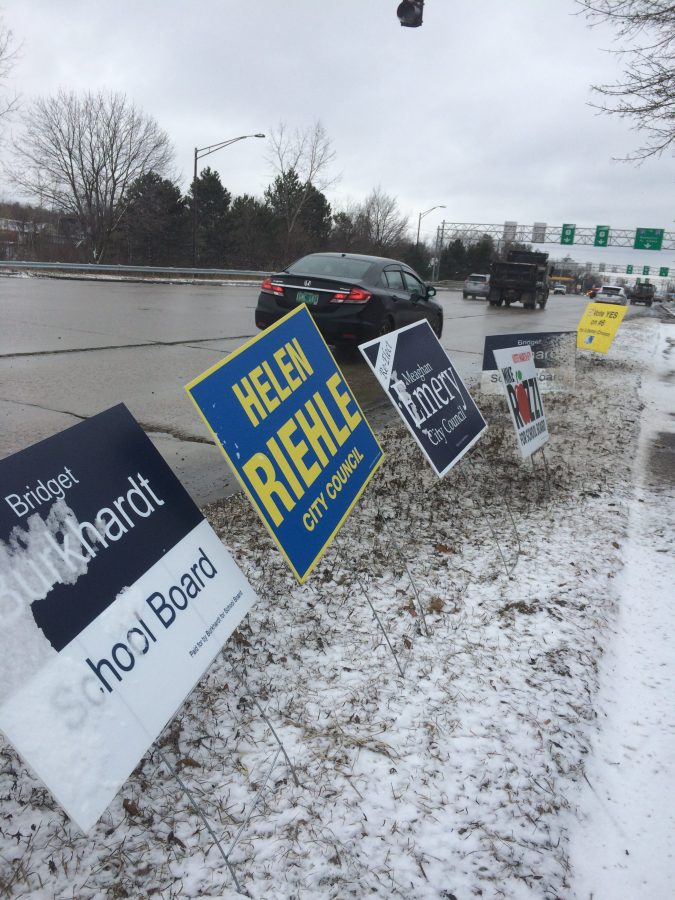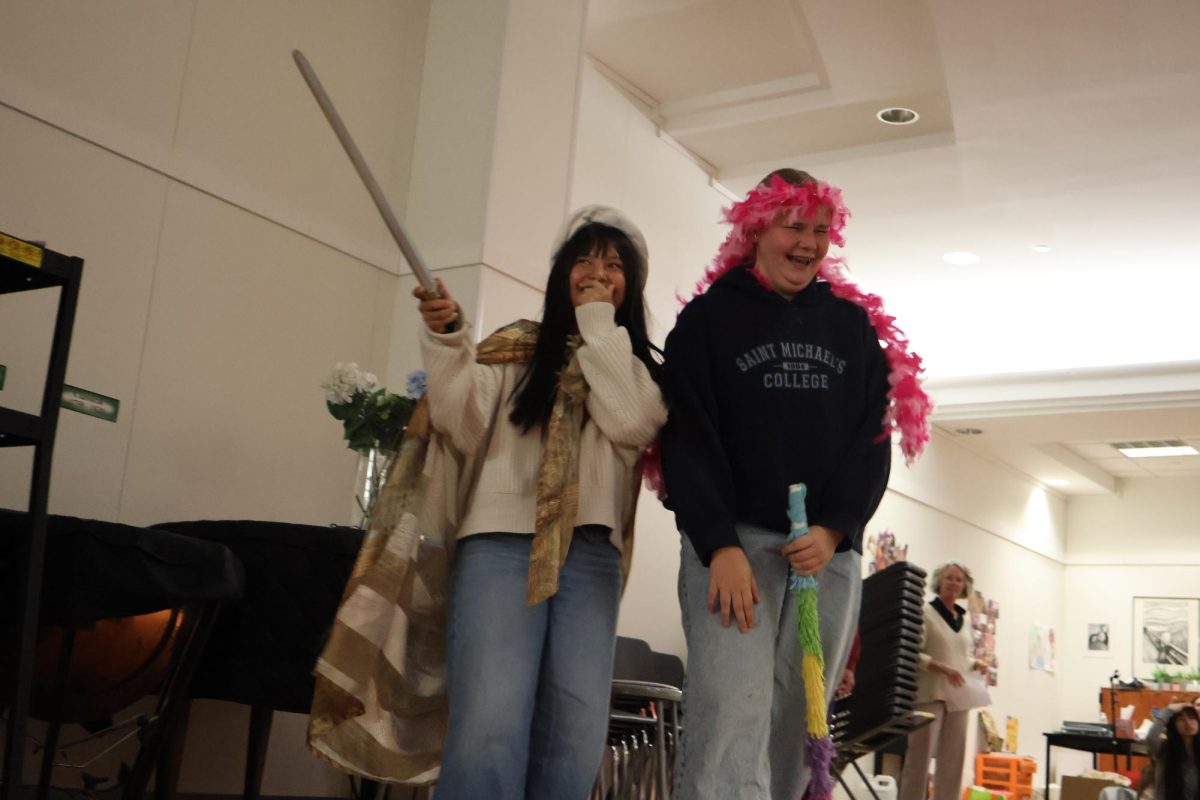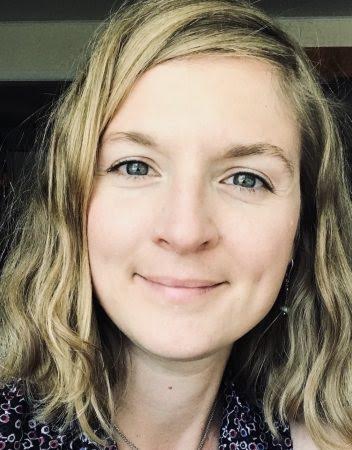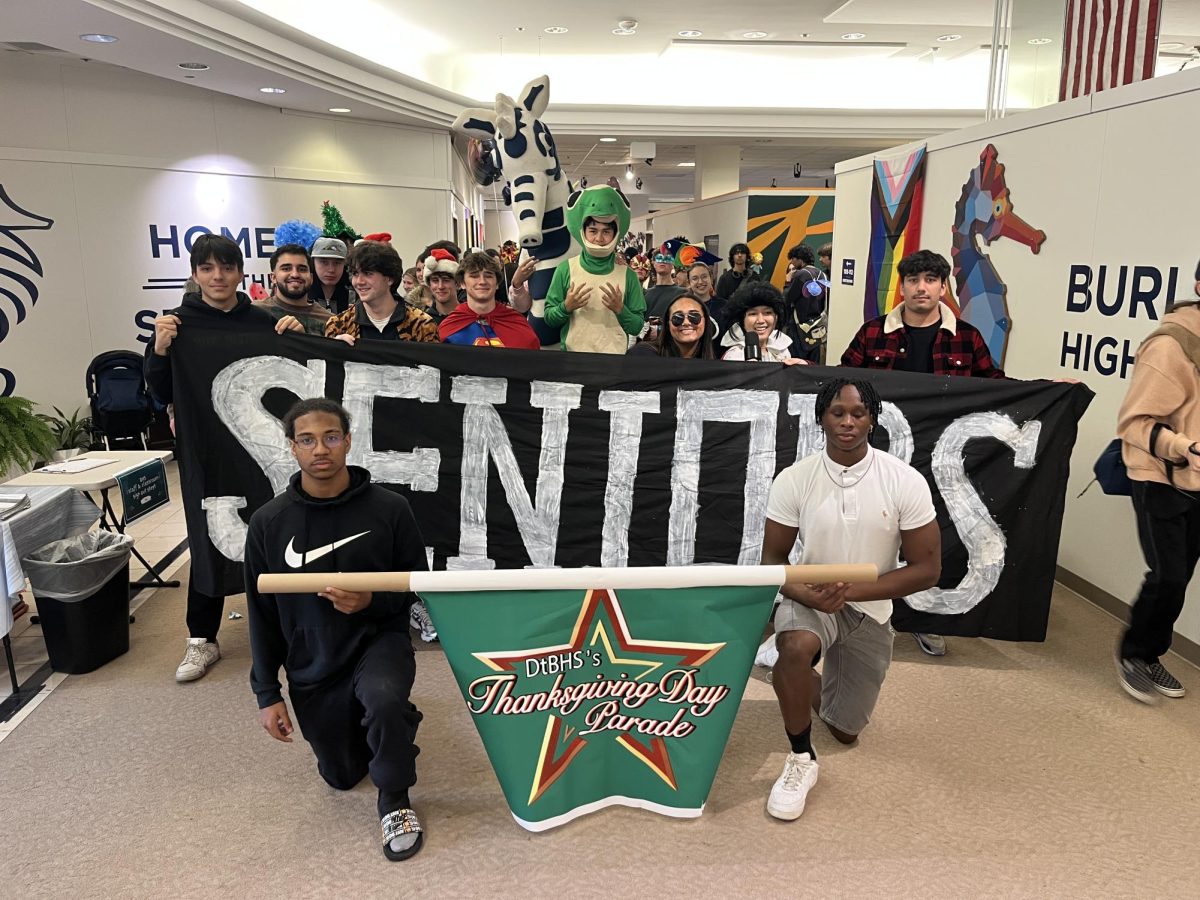Co-written by Jenna Peterson and Summer Grace
Town Meeting Day is tomorrow and school board candidates are reaching out to the Burlington High School (BHS) Community. BHS students named some issues that are valued at the high school and the Register interviewed the eight new candidates about how they planned to address these topics. Here are our results.
How do you plan to address controversial topics such as racism?Nicole Twohig:
It is our job as school board members to ensure everyone in our school district feels both physically and socially safe from those that want to perpetuate bias-motivated acts or hate speech of any kind. We have to build and support more student-led activist groups and help them connect with outside partners to leverage already existing local and national resources to help move these uncomfortable, and often difficult, conversations forward in a positive way.
Mike Fisher:
I don’t believe that schools are a democracy, and I don’t believe that decision by consensus is efficient – in the school district, there are people who have the position (whether elected or appointed or by their job) to make the final decision. Identifying who is the accountable person to make the decision and ensuring they have listened to the stakeholders is a key method to addressing controversial topics.
Martine Larocque Gulick:
I plan to help create a policy that expresses clearly that racism and expressions or symbols of racism and hate will not be tolerated in our schools. Students in all BTV schools need to feel safe from bias and aggression at all times. I plan to support district leadership that works to provide classes, conferences, and assemblies that teach students to identify bias, both implicit and explicit and promote resources that are vetted to express a wide-range of experiences and cultures in all schools. I will support leaders who encourage our students to speak up for social justice and express themselves creatively and peacefully.
Clare Wool:
“For the past two weeks, I worked with the SJU and listened and supported them, like all groups. To me, it’s about collaborating with your teachers, your students, your staff here, to listen and validate the concerns that students have.”
Steve Carey:
I’m thrilled to know what’s happened so far regarding the Black Lives Matter flag and the petition signed to make a difference in the school. I support that decision and support that process. We live in a racist country and we need to acknowledge it, and the African American experience needs to be taught. I would support courses where that is really investigated. The idea of students coming the forth with that idea is great.
Monika Ivancic:
I propose to use education to teach people about racism and particularly institutionalized racism. For many decades our country has had institutionalized racism, meaning that racism is so ingrained that people don’t realize they are being racist. I would promote workshops in recognizing racism, and calling out racism when it occurs. I would not allow racist propaganda or fliers to be promoted at our schools and would work hard to teach people empathy and compassion when it comes to dealing with people of color. As a school commissioner, I would promote hiring school staff with similar beliefs and attitudes that I describe here.
What are your thoughts on how to improve the budget? Where should cuts be made, what should have priority?
Nicole Twohig:
In its current form, the formula is outdated and arbitrary particularly when it comes to the adjustment for English Language (EL) learning students, a mere 20% additional weight compared to other states that allot twice as much. Teachers need professional development to keep up with new and emerging best practices in the field including trauma-informed strategies and new curricula programming. Currently, our teachers are receiving little to no professional development. This has to change.
Mike Fisher:
Overall, I agree with one of the budgeting strategies that Superintendent Obeng put forward, in that schools with the highest needs should get more of the scarce resources. That means looking at factors such as how many students in each school get free and reduced lunch, are English Language Learners, or have Individualized Education Plans, and then allocated more resources (staff and services) to those schools.
Martine Larocque Gulick:
We need to address education funding at a state and national level. I hope to work with legislators and city council members to make education a priority for our city and state. Quality building leadership and educators are essential. The school board and the teachers’ union need to build a collegial relationship so they can engage the public in creating and supporting the best possible school system in Burlington.
Clare Wool:
“I believe that we haven’t done enough to communicate to Montpelier. They need to hear from our senators. We have an 84 million dollar budget: we need to be able to identify where that money goes. We need to see activate participation and people need to be able to give their ideas.”
Steve Carey:
I think there should be no cuts to any direct student services. Teachers in classrooms working first with students. There are areas where cuts can be made which would not affect student services. Any position where people are not specifically helping students. There are people who work in the Burlington school system that don’t work with students: it’s unnecessary.
Monika Ivancic:
I believe that fiscal transparency is of utmost importance when discussing the budget, making the public aware of where and how our tax money is being invested. My budget priorities would be with investing in direct classroom instruction, providing more help to teachers when needed. I would ensure that equity policies get utmost priority, particularly when it comes to bridging the achievement gap (so support EL teachers, multilingual liaisons, as well as social workers and special educators). Decisions on where to make cuts may be difficult, perhaps conserve on maintenance staff (painters, grounds people), as long as the work can still be accomplished using existing staff. I would also likely suggest cuts to certain extracurricular activities that only serve a few students.
Is accessibility in schools important to you? How do you plan on addressing this issue?
Nicole Twohig:
As someone with a chronic disease, I have a better understanding than most of what living with a disability means. Accessibility in the schools isn’t just important it’s a federal requirement under the Americans with Disability Act (ADA) Title III. When it comes to BHS, we know the issues in the existing building are extensive. Talks of renovating or adding on to the existing building seem like they would miss the mark on many issues, from building efficiency and accessibility to school safety design.
Mike Fisher:
As a board member, I would instruct the superintendent to report on accessibility across all the district facilities, create a plan to remediate based on impact and ability to execute, and then monitor the implementation of that plan over time.
Martine Larocque Gulick:
I have been working with the BHS ReEnvision Committee to encourage our voters to support the building of or the rebuilding and renovating of the high school. Accessibility is essential and no students should have to climb seven stories through multiple buildings.
Clare Wool:
“I am very concerned about how long it’s gone on where we have ignored the accessibility issues at the high school. That takes leadership and you need to have a principal and superintendent that demand accessibility. Even if money is tight we have to put it on the forefront: it is a huge priority for me. I believe we are getting there much more in the past year due to parent advocacy.”
Steve Carey:
“It’s essential and part of the law. The building needs to be accessible to everyone. This building has been around since the 50’s/60’s, I think it’s time for a brand new building.”
Monika Ivancic:
Yes, accessibility in schools is a very important issue, since I believe that everyone deserves an equal education, or at least have an equal opportunity at school. I think that the Vermont schools have done a good job in employing paraprofessionals so that students with special needs are part of the regular classroom and are included in all school activities. I will reach out to students of disadvantaged socioeconomic status, as well as New American families, to ensure their needs are being met at our schools. Often, these people do not have representation at the table or a voice when it comes to decision making at the district level.








